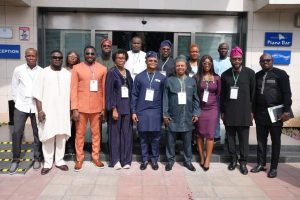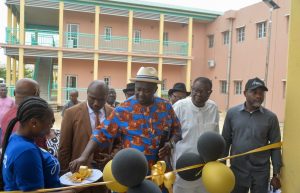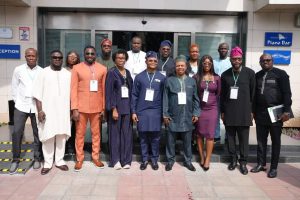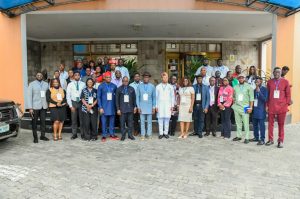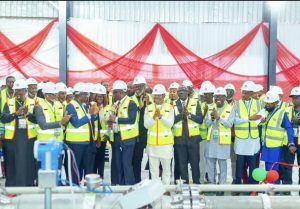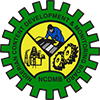The Nigerian Content Development and Monitoring Board (NCDMB), the Nigerian Agip Oil Company (NAOC) and key stakeholders of the oil and gas industry have committed to achieving high Nigerian Content levels in the Zabazaba development project.
NAOC is developing the Zabazaba and Etan deep water integrated project in partnership with Shell Nigeria Exploration Company on Oil Prospecting License (OPL) 245 and the company recently partnered with the Board to organise a workshop on the Nigerian Content opportunities available on the Floating Production, Storage and Offloading (FPSO) platform to be deployed on the project.
The Nigerian Content opportunities in the FPSO package are in Engineering, Procurement, Construction and Integration (EPCI) and the workshop was organised to discuss the project scope and opportunities, harness available capacities and develop new capacities to meet the project requirements. It also provided a platform for international and local contractors to discuss possible collaborations ahead of the preparation of EPC tenders.
Delivering his opening remarks at the workshop, the Acting Executive Secretary of the Board, Mr. Daziba Patrick Obah expressed the Board’s determination to ensure that the FPSO package gets delivered in accordance with the provisions and targets set in the Nigerian Oil and Gas Industry Content Development (NOGICD) Act 2010.
He noted that the Board learnt lessons from the evaluation and compliance monitoring carried out on Total’s Egina deep water project and intends to build on those lessons on the Zabazaba and Etan deep water project.
He confirmed that the industry recorded significant Capacity Development Initiatives on the back of Egina project, the most prominent being the FPSO Integration yard being constructed at LADOL in readiness for the Egina FPSO integration in 2017.
“This legacy investment is a clear demonstration that major EPC projects can be leveraged to expand capacities and develop new capabilities for the benefit of the industry,” Obah added.
Earlier in his remarks, the Vice Chairman of NAOC, Mr. Massimo Insulla explained that the company was embarking on the Zabazaba development project “when everybody is scared of investing in the oil and gas business around the world due to low oil prices as well as factors related to global economic downturn.” He also solicited the cooperation of all stakeholders towards the success of the project.
The MD stated that separate workshops would be organised for other packages of the project including the supply of line pipes for gas export, EPC for umbilicals, EPCI for pipelines, flowlines, risers and installation, EPC for SPS and wellheads and EPC for Calm buoy offloading.
In his goodwill message, the Chairman, House of Representatives Committee on Local Content, Honourable Emmanuel Ekon commended NAOC for investing in the industry at a time of recession. He noted Nigerian contractors had demonstrated capacity on the Egina project, expressing confidence that they would deliver on the Zabazaba project if given the opportunity.
He assured foreign EPCI contractors that the Nigerian Content Act was not designed to exclude foreign participation in the Nigerian oil and gas industry but encourages partnership with local players, capacity building and in-country domiciliation. He stressed that the Federal Government was keen to attract investments from international service companies but they must be willing to obey the laws of the country.
The Committee Chairman also admonished Nigerians contractors to always deliver contracts awarded them on schedule and specification, stressing that Nigerian Content was designed for companies that have built capacity as well as those ready to prove themselves.
The three day workshop featured several presentations from NAOC, international and local contractors and other stakeholders. The Chairman of the Petroleum Technology Association of Nigeria (PETAN), Mr. Bank-Anthony Okoroafor in his presentation proposed a model where PETAN companies would use a consortium to execute large scopes of the project locally.
According to him, using a consortium would create about 20,000 new jobs within the oil and gas industry, save over 30 per cent of the project costs using Naira based labor and manpower and retain up to $1bn in-country spend. Other benefits according to Okoroafor include reduction of project delivery risks, technology transfer in licensing and module know-hows, 9000 tonnes fabrication locally, increased tax revenue generation for government and fostering greater collaboration between Nigerian companies.
Discover more from Nigerian Content Development & Monitoring Board
Subscribe to get the latest posts sent to your email.

